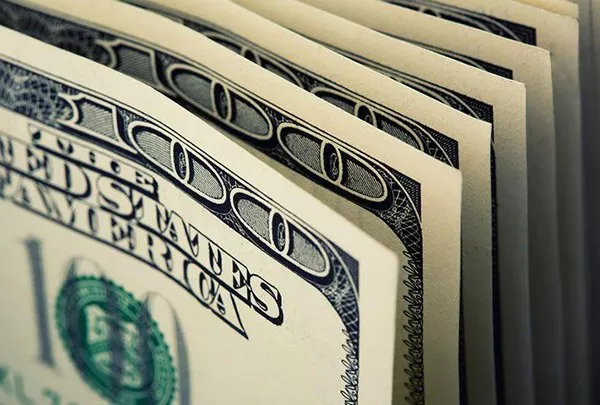The strength and stability of the United States dollar, often referred to as the world’s reserve currency, is a topic of significant interest and debate in global financial markets. As the global economy evolves and geopolitical dynamics shift, it becomes crucial to examine whether the US dollar is getting stronger or weaker. This article aims to provide a comprehensive analysis of various factors influencing the strength of the US dollar, including economic indicators, monetary policy, market sentiment, and international trade trends.
Historical Perspective
To understand the current state of the US dollar, it is essential to consider its historical trajectory. Historically, the US dollar has been regarded as a relatively stable and dominant currency globally. However, periods of fluctuation have occurred due to economic crises, political events, and shifts in monetary policies. Examining previous trends can help us gain insights into potential future scenarios.
1. Economic Indicators
Economic indicators play a crucial role in assessing the strength of any currency. Key indicators for analyzing the US dollar include GDP growth, unemployment rates, inflation, trade balance, and consumer confidence. A robust and growing economy generally strengthens the dollar, while weak economic performance can lead to a weaker currency. Analyzing these indicators within a global context provides a clearer picture of the US dollar’s trajectory.
2. Monetary Policy and Interest Rates
Monetary policy decisions made by the Federal Reserve (Fed) significantly impact the value of the US dollar. The Fed adjusts interest rates to control inflation, stimulate economic growth, and maintain financial stability. When the Fed raises interest rates, it attracts foreign investments, boosting the demand for the dollar and increasing its strength. Conversely, reducing interest rates may weaken the dollar by encouraging investors to seek higher returns elsewhere.
3. Market Sentiment and Investor Confidence
Market sentiment and investor confidence play a crucial role in currency valuation. In times of global uncertainty or economic instability, investors often seek refuge in safe-haven assets like the US dollar. This increased demand can strengthen the dollar. However, positive market sentiment towards other currencies or geopolitical developments may lead to a weaker dollar as investors diversify their portfolios.
4. International Trade Dynamics
The strength of the US dollar is closely tied to international trade dynamics. Being the world’s reserve currency, the US dollar is widely used for international transactions. The trade balance, import-export differentials, and exchange rates impact the relative strength of the dollar against other currencies. A robust trade surplus strengthens the dollar, while a trade deficit weakens it. Additionally, policies and agreements relating to trade, such as tariffs or free trade agreements, can influence the dollar’s strength.
5. Geopolitical Factors
Geopolitical factors, such as political stability, global conflicts, and international relations, can affect the strength of the US dollar. Uncertainty or tensions in regions with significant economic influence may lead to increased demand for safe-haven assets, including the dollar. Conversely, positive geopolitical developments or shifts in economic power may weaken the dollar as investors explore alternative investment opportunities.
What happens when the U.S. dollar gets stronger?
When the U.S. dollar gets stronger, it means that the value of the U.S. dollar increases relative to other currencies. This can have several effects on various aspects of the economy:
International Trade: A stronger U.S. dollar makes imported goods relatively cheaper for U.S. consumers while making American exports more expensive for foreign consumers. This can lead to an increase in imports and a decrease in exports, potentially widening the trade deficit.
Inflation: A stronger dollar can help lower inflationary pressures as imported goods become cheaper. When the dollar strengthens, it reduces the cost of imported raw materials and commodities, which can lower production costs and, in turn, help keep prices down.
Investments: A strong U.S. dollar can make U.S. assets more attractive to international investors. Investors seeking higher returns may move their investments to the United States, increasing demand for U.S. stocks, bonds, and other financial assets.
Tourism: A stronger dollar can make traveling to the United States relatively cheaper for foreign tourists. It may encourage more international visitors, boosting tourism-related businesses. Conversely, it may discourage Americans from traveling abroad as their currency’s purchasing power increases.
Central Bank Actions: A stronger U.S. dollar can influence the actions of the U.S. Federal Reserve. If the dollar becomes too strong, the Fed might adjust its monetary policy to weaken the currency, aiming to stimulate exports and overall economic growth.
Conclusion
Determining whether the US dollar is getting stronger or weaker requires a comprehensive analysis of multiple factors. Economic indicators, monetary policy decisions, market sentiment, international trade dynamics, and geopolitical factors all contribute to the currency’s valuation. While recent trends indicate a relatively strong US dollar, future developments remain uncertain. Factors such as geopolitical tensions, changes in monetary policy, and trade imbalances can significantly impact the dollar’s strength. Regular monitoring and evaluation of these factors are essential for policymakers, investors, and individuals engaged in international trade to make informed decisions.
As global economic landscapes continue to evolve, ongoing analysis of the US dollar’s strength will remain critical in understanding its impact on global financial stability, trade flows, and investment opportunities.


